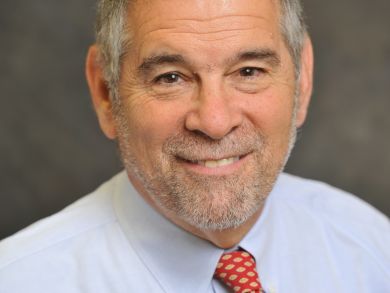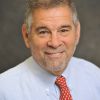North Peninsula Jewish Community Scholar in Residence Lecture Series

A Series of Free Lectures featuring Dr. Michael Berenbaum
Not Your Father’s Antisemitism
Wednesday, January 8 · 7:30 pm
Ronald C. Wornick Jewish Day School, Ulam Gadol (800 Foster City Blvd, Foster City · 650.378.2600)
Antisemitism in the 21st century is dramatically different from traditional antisemitism, a change for which the Jewish community may not be prepared. A lesser percentage of Americans are antisemitic than ever before, yet antisemitic incidents and acts of violence are significantly on the rise and even in a polarized society the extreme radical right and the radical left can agree on targeting the Jews. What has caused this surge in Jew-hatred and what can the Jewish community do about it?
This PJCC program requires pre-registration. Call 650.378.2703, visit the PJCC Welcome Center, or register online.
The Uses and Abuses of the Memory of the Holocaust
Thursday, January 9 · 7:30 pm
Peninsula Temple Sholom (1655 Sebastian Drive, Burlingame · 650.697.2266)
Seventy-five years after the liberation of Auschwitz, the Holocaust is invoked by friend and foe alike as an icon for evil and human suffering, in addition to being the historical event of annihilating the Jewish People. We will explore the minimalization, trivialization and falsification of the Holocaust Memory, the role it plays in European nationalism, and its uses in combatting antisemitism. And we’ll examine the uses that Jews make of this most significant Jewish memory. Why should we remember the Holocaust and how can the memory of paradigmatic evil, death and destruction serve to enhance Jewish life, human responsibility and dignity?
Israel and the Problem of Antisemitism
Friday, January 10 · 6:45 pm Service, 7:30 pm Lecture
Peninsula Sinai Congregation (499 Boothbay Avenue, Foster City · 650.349.2816)
Zionism was founded on the idea that it could solve the problem of antisemitism by making the Jews a people like every other people with a land, a flag, and an army. For a time it worked, yet in our time, we see that Israel does not quench the fires of antisemitism but fuels the flames. How does the issue of Israel allow antisemites to mask their real motives? How do we distinguish between what may be legitimate and warranted criticism of Israel and Jew-hatred? And how does Israel use charges of antisemitism and self-hatred to shield itself against criticism?
Antisemitism and Other Hatreds in an Era of Populism, Anti-Globalism, and Polarization
Saturday, January 11 · 6:30 pm Havdalah, 7:00 pm Lecture
Congregation Beth Jacob (1550 Alameda de las Pulgas, Redwood City · 650.366.8481)
Is antisemitism a harbinger of the disintegration of democracy, pluralism, and tolerance? Is there a relationship between antisemitism and hatred of immigrants and other minorities? How should the Jewish community respond to various expressions of hatred? For Jews the issue is made more complex by the perception of Jews as powerful — and often all too powerful – and privileged whites and by the question of intersectionality: Should Jews join forces with groups with whom we share a social justice agenda if those groups make antisemitic statements?
Antisemitism: A Global Affliction
Monday, January 13 · 7:00 pm
Peninsula Temple Beth El (1700 Alameda de las Pulgas, San Mateo · 650.341.7701)
Antisemitism differs dramatically throughout the world. In Eastern Europe, antisemitism is rewriting the history of the Holocaust and cleansing nations and native populations of their responsibility for the murder of local Jewish populations. In Western Europe and the United States, it is directly linked to a growing, angry anti-immigration sentiment on the right as well as the perception of Israel as an oppressor from the left. In the Islamic world, the traditional tolerance of Islam toward the “people of the book” has been replaced by a demonization of the Jew and the introduction of religious fervor into a political dispute. How should the Jewish community respond to these wide-ranging attacks and what hope exists for diminishing antisemitism?
2020 Scholar-in-Residence Sponsoring Organizations



